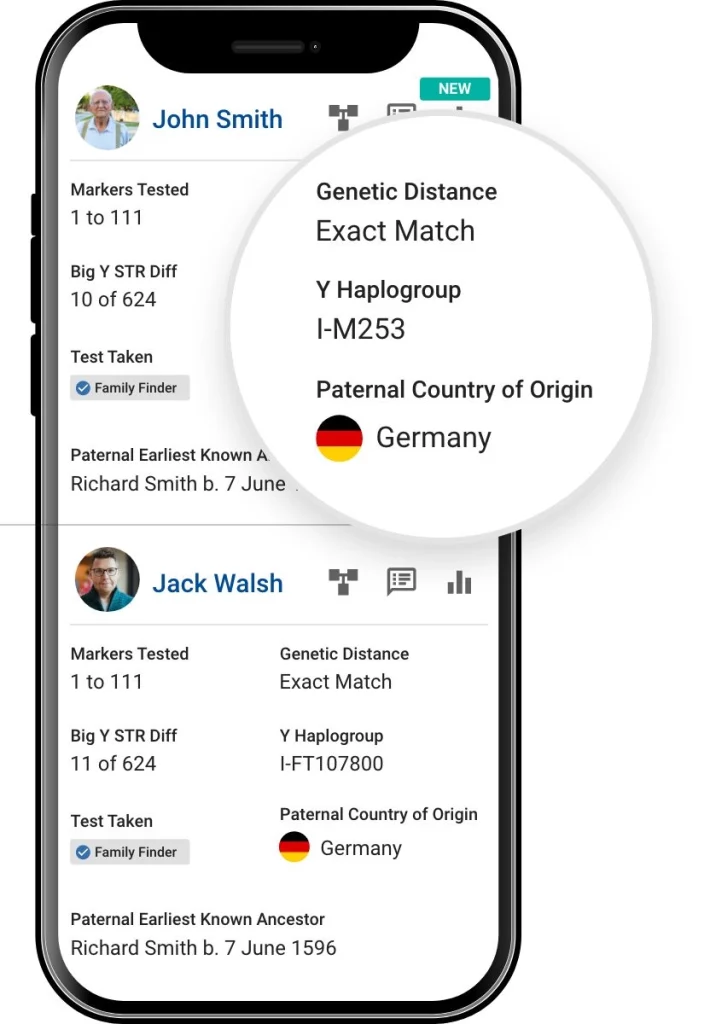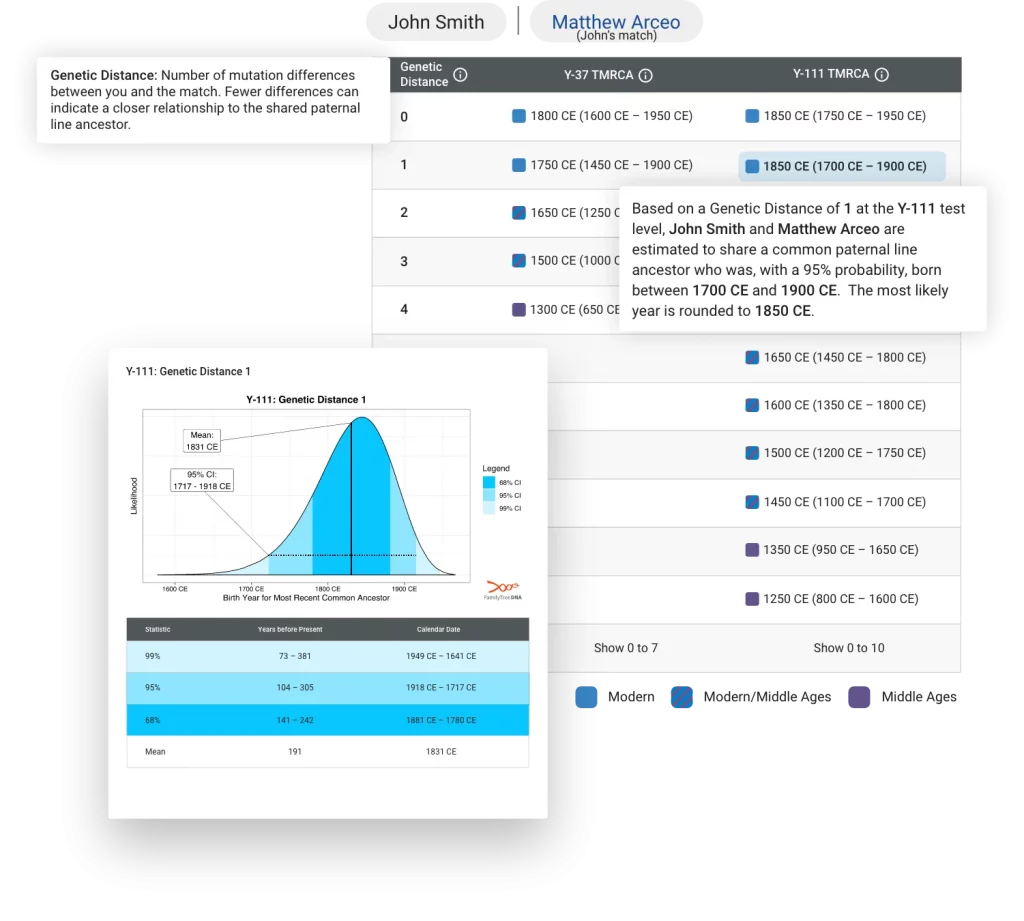Why Y-DNA Matters
For Genetic Males:
The Y chromosome is the thread connecting fathers to sons biologically. Hence, for genetic males, the Y-DNA test serves as a gateway to exploring and researching their paternal lineage.
For Genetic Females: Females, lacking the Y chromosome, cannot undergo Y-DNA testing directly. However, those interested in tracing their paternal lineage can still embark on this journey by encouraging a male relative—a brother, uncle, father, or cousin—to partake in the Y-DNA test.


Connecting through Y-DNA Relations
Join the world’s largest database of Y-DNA testers
Embark on a journey within the extensive database of Y-DNA testers, uncovering connections with individuals who share a common forefather along your direct paternal line. These matches could trace back to recent or distant ancestors, offering invaluable insights into your patrilineal family history.
Exploring Y-DNA Matches
Unveiling Your Y-DNA Haplogroup
Peer into the family trees of your Y-DNA matches, allowing a deeper understanding of shared patrilineal ancestry and unearthing new branches of ancestral heritage.
Delve into the path forged by your male predecessors, tracing their geographical origins, historical movements, and migration routes across the globe. Discover the ancient migration patterns of your patrilineal ancestors, spanning from their exodus out of Africa or across continents.


Back in Time
Insights from the Y-DNA Report
Gauge the temporal depth of shared paternal ancestry with your matches, estimating the historical closeness of relationships, guiding your research into historical eras, and corroborating genealogical hypotheses. The depth of marker analysis, from Y-37 to Y-111, provides increasingly precise timelines.
Engaging in Y-DNA Group Projects
Become a part of, contribute to, or initiate group endeavors focused on surname associations, geographical clusters, or specific haplogroup explorations. These projects unveil detailed insights into ancestral lineages, regional haplogroups, and the dispersion of lineages over time across various global territories.



Reviews
There are no reviews yet.